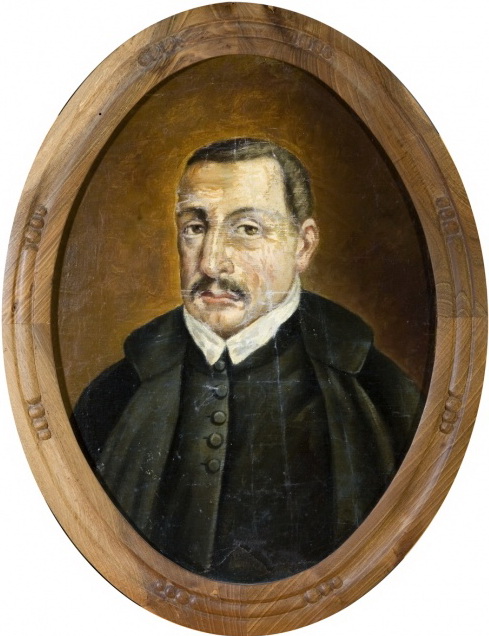Lupercio Leonardo de Argensola on:
[Wikipedia]
[Google]
[Amazon]
 Lupercio Leonardo de Argensola (baptised 14 December 1559 – 2 March 1613) was a Spanish
Lupercio Leonardo de Argensola (baptised 14 December 1559 – 2 March 1613) was a Spanish
 Lupercio Leonardo de Argensola (baptised 14 December 1559 – 2 March 1613) was a Spanish
Lupercio Leonardo de Argensola (baptised 14 December 1559 – 2 March 1613) was a Spanish dramatist
A playwright or dramatist is a person who writes plays.
Etymology
The word "play" is from Middle English pleye, from Old English plæġ, pleġa, plæġa ("play, exercise; sport, game; drama, applause"). The word "wright" is an archaic English ...
and poet
A poet is a person who studies and creates poetry. Poets may describe themselves as such or be described as such by others. A poet may simply be the creator ( thinker, songwriter, writer, or author) who creates (composes) poems ( oral or wri ...
.
Biography
He was born inBarbastro
Barbastro (Latin: ''Barbastrum'' or ''Civitas Barbastrensis'', Aragonese: ''Balbastro'') is a city in the Somontano county, province of Huesca, Spain. The city (also known originally as Barbastra or Bergiduna) is at the junction of the rivers Cin ...
. He was educated at the universities of Huesca
Huesca (; an, Uesca) is a city in north-eastern Spain, within the autonomous community of Aragon. It is also the capital of the Spanish province of the same name and of the comarca of Hoya de Huesca. In 2009 it had a population of 52,059, almo ...
and Zaragoza
Zaragoza, also known in English as Saragossa,''Encyclopædia Britannica'"Zaragoza (conventional Saragossa)" is the capital city of the Zaragoza Province and of the autonomous community of Aragon, Spain. It lies by the Ebro river and its tributari ...
, becoming secretary to the duke de Villahermosa in 1585. He was appointed historiographer of Aragon in 1599, and in 1610 accompanied the count de Lemos to Naples
Naples (; it, Napoli ; nap, Napule ), from grc, Νεάπολις, Neápolis, lit=new city. is the regional capital of Campania and the third-largest city of Italy, after Rome and Milan, with a population of 909,048 within the city's adminis ...
, where he died in March 1613.
His tragedies—''Fills'', ''Isabela'' and ''Alejandra''—are said by Cervantes
Miguel de Cervantes Saavedra (; 29 September 1547 (assumed) – 22 April 1616 Old Style and New Style dates, NS) was an Early Modern Spanish writer widely regarded as the greatest writer in the Spanish language and one of the world's pre-emin ...
to have "filled all who heard them with admiration, delight and interest".Cervantes, Don Quixote
is a Spanish epic novel by Miguel de Cervantes. Originally published in two parts, in 1605 and 1615, its full title is ''The Ingenious Gentleman Don Quixote of La Mancha'' or, in Spanish, (changing in Part 2 to ). A founding work of West ...
, Vol.1 Ch. 48 ''Filis'' is lost, and ''Isabela'' and ''Alejandra'', which were not printed till 1772, are imitations of Seneca
Seneca may refer to:
People and language
* Seneca (name), a list of people with either the given name or surname
* Seneca people, one of the six Iroquois tribes of North America
** Seneca language, the language of the Seneca people
Places Extrat ...
.
Argensola's poems were published with those of his brother, Bartolomé Leonardo de Argensola, in 1634; they consist of translations from the Latin
Latin (, or , ) is a classical language belonging to the Italic branch of the Indo-European languages. Latin was originally a dialect spoken in the lower Tiber area (then known as Latium) around present-day Rome, but through the power of the ...
poets, and of original satire
Satire is a genre of the visual, literary, and performing arts, usually in the form of fiction and less frequently non-fiction, in which vices, follies, abuses, and shortcomings are held up to ridicule, often with the intent of shaming ...
s.
Notes
References
*External links
* * 1559 births 1613 deaths People from Barbastro Spanish poets Spanish dramatists and playwrights Spanish male dramatists and playwrights Spanish male poets University of Zaragoza alumni {{Spain-writer-stub